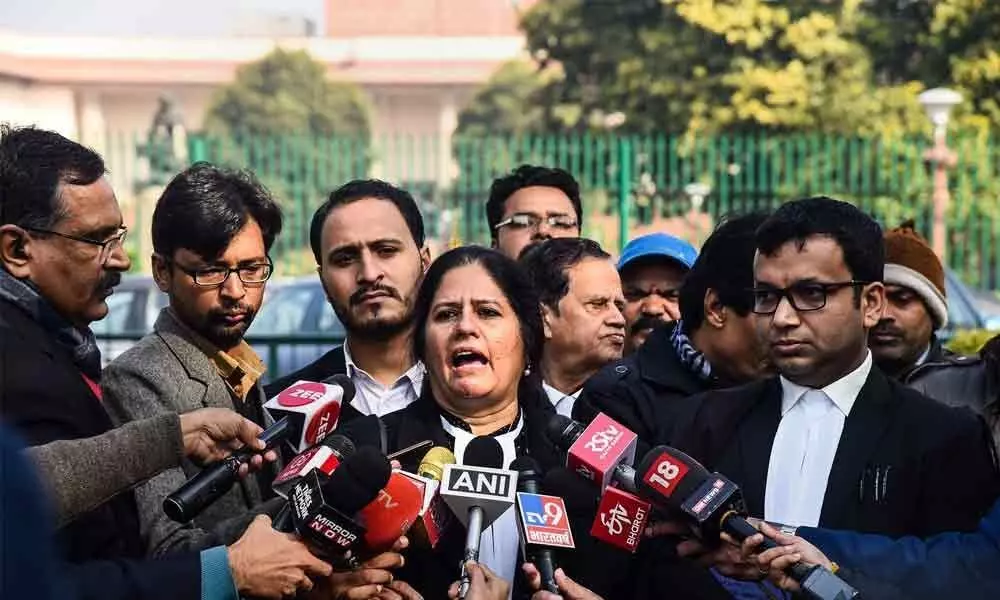Freedom of speech, biz on Net protected by Constitution: Supreme Court
 Supreme Court advocate Vrinda Grover speaks to media personnel after the apex court's verdict on Jammu and Kashmir issue, in New Delhi on Friday
Supreme Court advocate Vrinda Grover speaks to media personnel after the apex court's verdict on Jammu and Kashmir issue, in New Delhi on FridayJ&K admin directed to review sanctions
New Delhi : Freedom of speech and conducting business on the Internet are protected under the Constitution, the Supreme Court said on Friday while directing the Jammu and Kashmir administration to immediately review curb orders.
The top court also said that power under Section 144, which prohibits assembly of four or more people, cannot be used to suppress legitimate expression of opinion or grievance or exercise of any democratic rights.
It directed the authorities in the Union Territory to immediately review all orders suspending Internet services and said that orders not in accordance with the law must be revoked.
It said Internet services cannot be suspended "indefinitely", and directed the J-K authorities to "consider forthwith" allowing government websites, localised/ limited e-banking as also hospitals and other essential services in areas where the services are not likely to be restored immediately.
"We declare that the freedom of speech and expression and the freedom to practice any profession or carry on any trade, business or occupation over the medium of internet enjoys constitutional protection under Article 19(1)(a) and Article 19(1)(g)," a 3-judge bench, headed by Justice N V Ramana, said in its 130-page verdict.
"The restriction upon such fundamental rights should be in consonance with the mandate under Article 19 (2) and (6) of the Constitution, inclusive of the test of proportionality," it said.
Holding that an order suspending Internet services indefinitely is impermissible under the Temporary Suspension of Telecom Services (Public Emergency or Public Service) Rules, 2017, the top court said that suspension can be utilised only for temporary duration.
Any order suspending Internet issued under the Suspension Rules, must adhere to the principle of proportionality and must not extend beyond necessary duration, it said.
Existing Suspension Rules neither provide for a periodic review nor a time limitation for an order issued under the Suspension Rules, it added.
"Till this gap is filled, we direct that the Review Committee constituted under Rule 2(5) of Suspension Rules must conduct a periodic review within seven working days of the previous review, in terms of the requirements under Rule 2(6)," the apex court said.
The judgement came on pleas filed by Anuradha Bhasin, Executive Editor of Kashmir Times and Congress leader Ghulam Nabi Azad which challenged the curbs imposed in Jammu and Kashmir after the Centre's abrogation of provisions of Article 370 on August 5 last year.
These pleas were different from another set of petitions which have challenged the constitutional validity of abrogation of Article 370, being heard by a sperate 5-judge Constitution bench which will resume its hearing on January 21.















